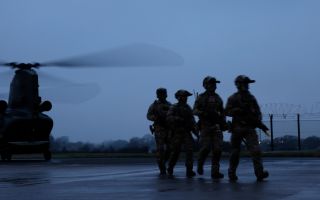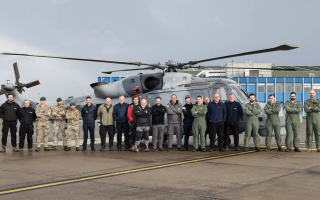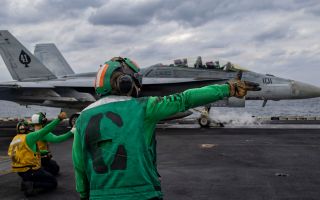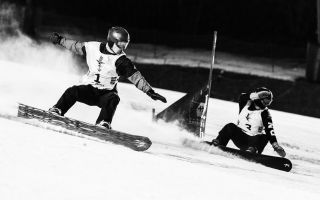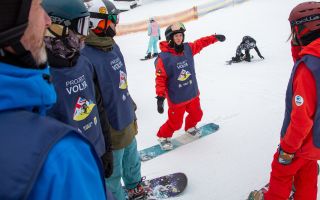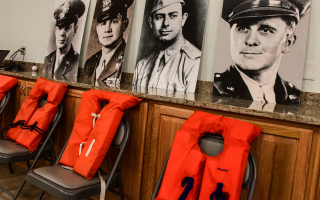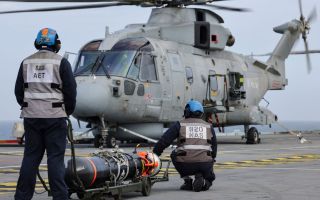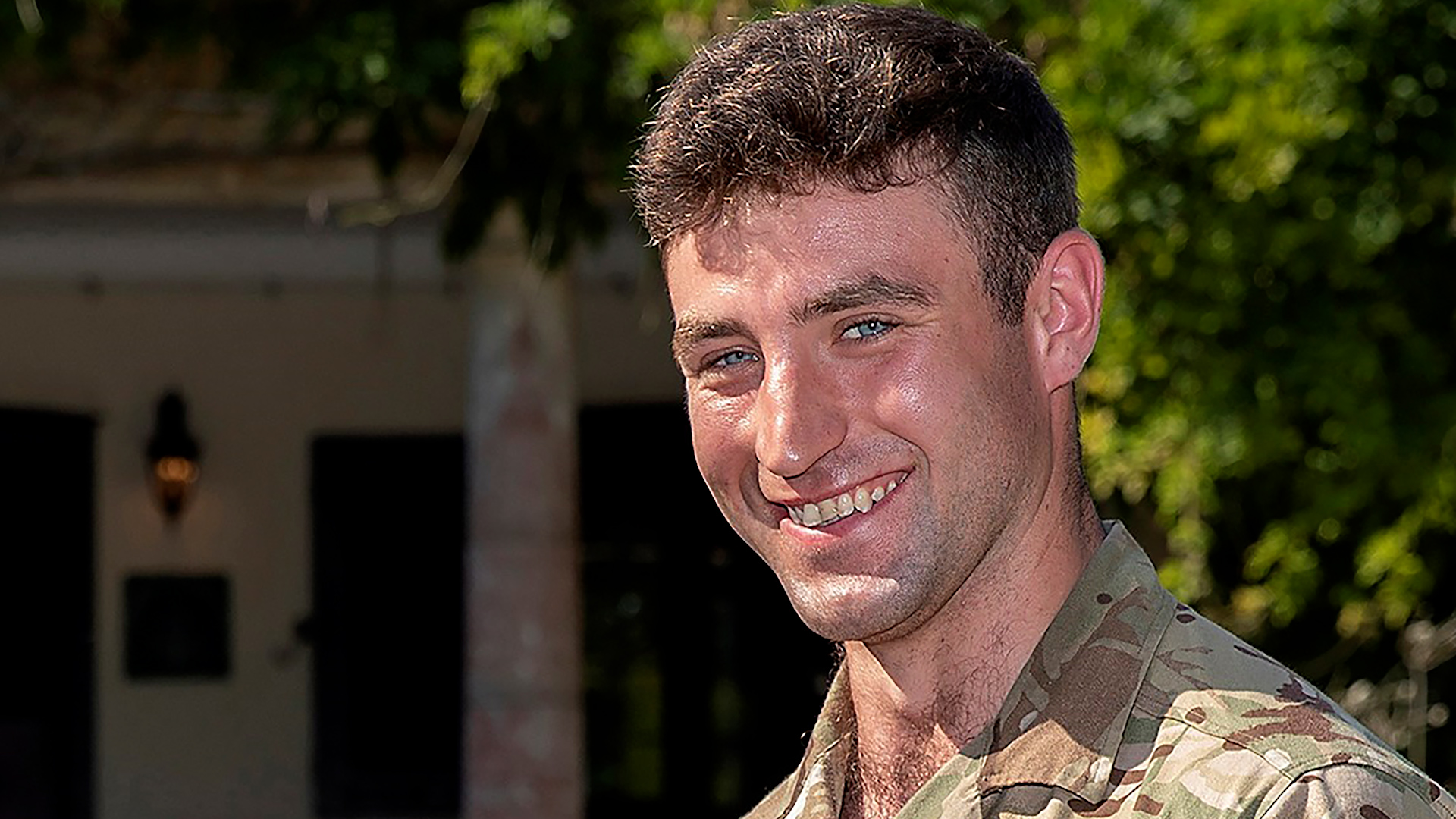
Inappropriate acceleration of training contributed to death of marine, coroner says

A coroner has written to the Defence Secretary, listing a catalogue of failures that led to the death of a Royal Marine during "arduous training for operations with an elite unit".
Sir Ernest Ryder, who was nominated Judge Coroner for the inquest of Royal Marine Benjamin McQueen, said a number of failures were made that contributed to the 26-year-old's death, including an "inappropriate" acceleration in training partly due to the visit of a high-ranking officer.
Marine McQueen died during a diving drill on 14 November 2018 in Portland Harbour, Dorset.
In last month's inquest, Sir Ernest ruled Marine McQueen experienced "complications" during the dive and had accidentally drowned.
The judge coroner found the stand-by diver had to surface having run out of breathable gas before Marine McQueen was found.
In his report delivered to Defence Secretary Ben Wallace, Sir Ernest also expressed concern over no spare breathing apparatus cylinder for the stand-by diver and the lack of a defibrillator.
Criticising the "acceleration" of the training, Sir Ernest said: "The progression of the dive training in which Ben was engaged was safety-critical.
"The progression of training was accelerated for several reasons, one of which was a visit by a high-ranking naval officer.
"The concern of the instructing staff was to polish the drills ahead of that visit and to take the pressure off the dive students by allowing them to practise the dive with relevant equipment ahead of the visit.
"This acceleration of safety-critical training in part because of such a visit was not appropriate."
He added: "I am reassured that action has been taken in Ben’s former unit such that this should not recur in relation to the relevant diving training.
"But I have a concern as to whether this has been shared more widely amongst other military units."
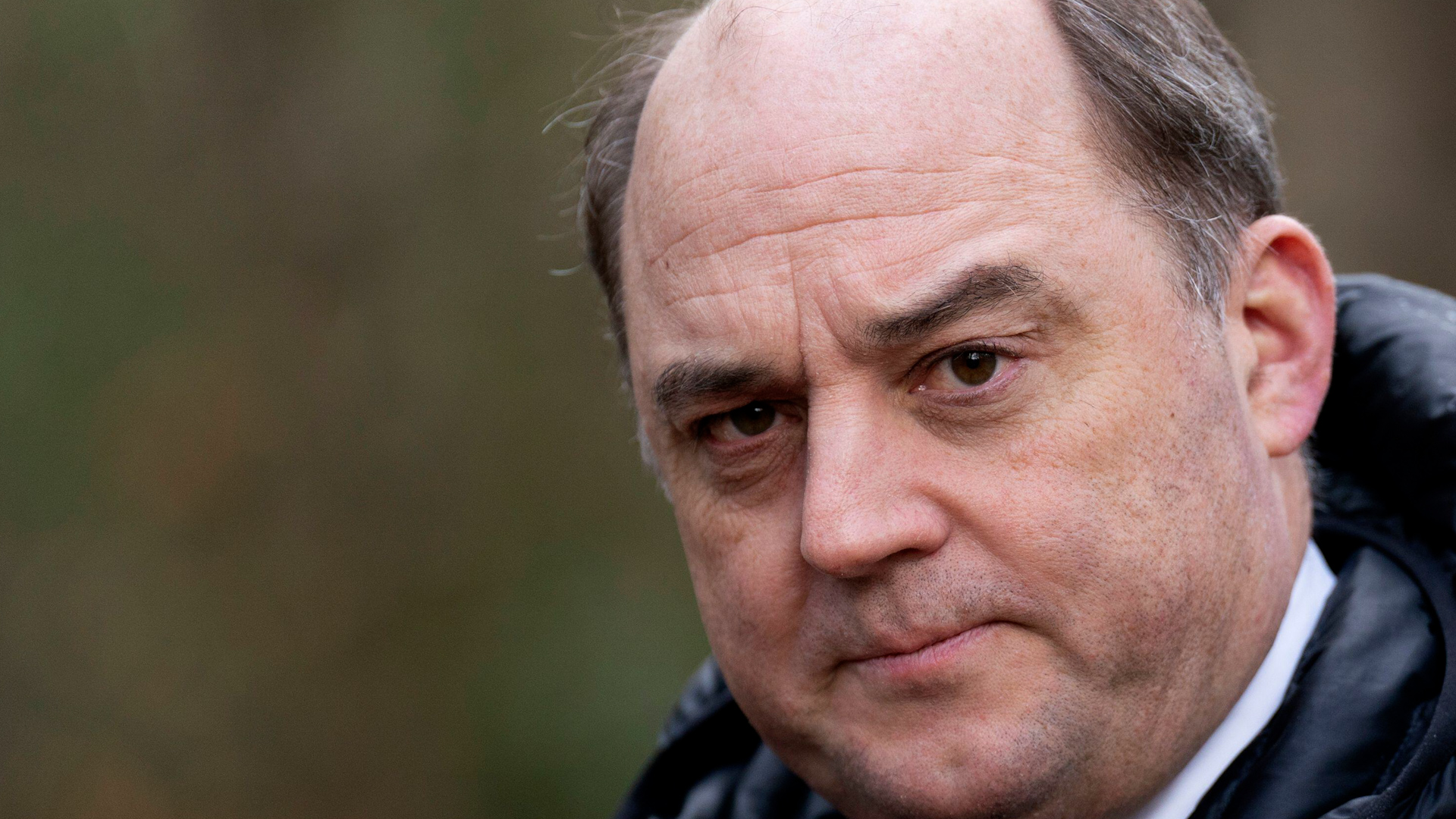
Much of the three-week inquest into Marine McQueen's death at the Royal Courts of Justice in London was held in secret due to national security concerns.
In his Prevention of Future Deaths report, Sir Ernest said Marine McQueen's former unit "collectively took diver safety seriously and conscientiously" but went on to list a number of "failures" that contributed to his death.
Sir Ernest wrote: "Not topping up breathable gas levels between the two dives; The lack of a training requirement for all signals to be acknowledged; Inadequate risk assessment for the combined use of the equipment on the exercise which failed to identify mitigating measures for the risks arising,
He continued: "A marked and inappropriate increase in the rate of training progression in the second phase of the exercise; Insufficiently firm instruction on when student divers should surface."
Sir Ernest added he has received "detailed evidence" from the Ministry of Defence (MOD) on the changes made to military diving training since the death of Marine McQueen.
He said: "From that evidence, it is very clear that there has been a comprehensive and far-reaching review of policies, practices and organisational structures which will have very significantly reduced the risk of future fatalities."
An MOD spokesperson said: "Our thoughts remain with the family and friends of Marine McQueen.
"The safety of our service personnel is our highest priority and while the coroner's conclusion acknowledges the efforts already made to aspects of military diving training, we will review and respond to the findings in due course."
Marine McQueen became a Royal Marine in September 2010 and later joined 45 Commando in Arbroath.
At 19, he was deployed to Afghanistan as part of Operation Herrick 14, for which he was awarded the Operational Service Medal.

